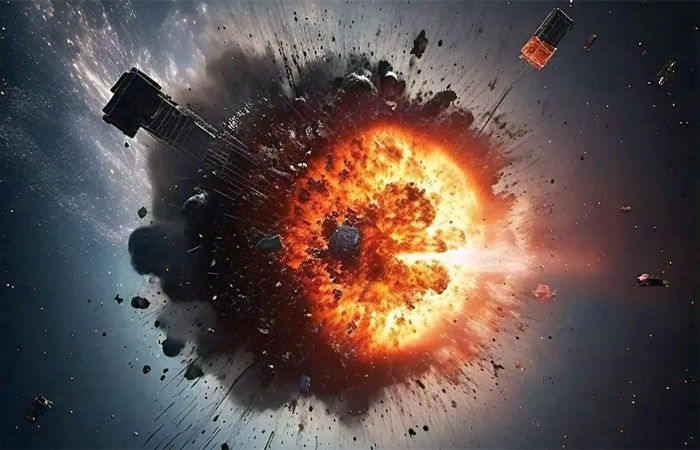
The two astronauts of the US space agency NASA who have been stranded in the International Space Station (ISS) for a long time include Indian-origin Sunita Williams and Barry Wilmore of America. They will have to spend at least 6 months there as full-time astronauts. The worrying thing is that a Chinese rocket has exploded in space. Its debris will hit the orbiting space station carrying Williams and Wilmore. In such a situation, the lives of many astronauts including Williams are in danger.
According to a report by Business Today, a Chinese rocket exploded in space. Its debris is scattered all around in space. Therefore, the lives of other astronauts are also in danger. However, the US Space Command has said that no such danger is visible at the moment.
China launched a rocket from Taiyuan Space Center on 6 August. After sending the satellite into space, China's Long March 6 rocket exploded. This rocket carried 18 Y60 satellites. It broke into more than 700 pieces. These pieces can damage more than 1000 satellites.
The Long-March 6 rocket exploded 530 meters (810 km) above the Earth's surface, reaching much higher than the ISS, which is 254 miles (408 km) above Earth. However, the cause of the rocket explosion is not yet known. According to a recent report by Bloomberg, China is monitoring the fragment, as its Foreign Ministry said that China is closely monitoring and analyzing the data. China attaches great importance to the protection of the outer space environment.
It is worth noting that a similar tragedy happened in 2022. Then another Long March 66 rocket exploded. So more than 500 pieces of that rocket broke, so the possibility of those pieces colliding with space objects increased.
The most worrying thing is that NASA itself has given up and said that since the date of landing the astronauts on the ISS has passed more than a month ago, the astronauts will remain in space till engineers can fix the problem in its Boeing capsule. Test pilots Wilmore and Sunita Williams were scheduled to spend about 1 week in the space lab and return in mid-June. But the thrusters of Boeing's new Star Liner capsule are likely to stay longer as the capsule's thrusters churn and leak helium. So NASA officials say that mission manager Steve Stich is not ready to announce any definite date of return.
 look news india
look news india